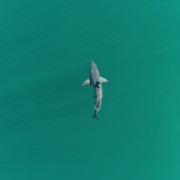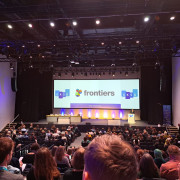- Science News
- Young Minds
- Celebrating 10 million views of kid-friendly science!
Celebrating 10 million views of kid-friendly science!

Frontiers for Young Minds has achieved a super exciting milestone in recent weeks – our articles have been viewed over 10 million times! The journal has reached a huge global audience with its freely-available scientific articles, all written for – and edited by - young people.
--- By Jenny Lycett
Small Beginnings
As the saying goes, ‘great oaks grow from small acorns’. From its launch in autumn 2013 with just a handful of articles, Frontiers for Young Minds started to grow steadily. Even before its first 50 articles had been published, the American Library Association recognized it as one of the Great Websites for Kids in 2014.
Since launching, the journal has published articles from more than 1,250 authors which have been reviewed by over 3,500 kids.
The journal's initial focus was solely on Neuroscience, until new sections on Astronomy and Space Science, and Earth and its Resources arrived in 2015. Three more sections have been added since, creating a broad range of kid-friendly content - young people can learn about anything from autism to phytoplankton.
Of course, there have been other changes along the way. A look back at one of the journal’s first ever articles shows a very different style of illustration to the ones we’re familiar with today!
What's next?
Talking about this latest milestone, chief editor Professor Robert Knight said: “This is a wonderful accomplishment and I am sure it will lead to many new roads of opportunity”.
Frontiers for Young Minds now has over 670 articles across the six sections and continues to grow each and every month. Earlier this year we were able to launch our brand new Arabic journal with 50 titles in Arabic! This exciting new project will make our articles even more accessible and will help us continue to grow our young audience worldwide.
So what’s next? By 2022 we’re aiming to publish our content in several more languages. This means we can continue to expand our audience and give as many young people, teachers and parents as possible free access to a quality, peer-reviewed source of scientific knowledge.
Having our articles shared through social media has been a huge help in growing our audience to the size it is today. If you would like to help us grow our audience further through social media please visit our Twitter, Facebook and Instagram pages.







